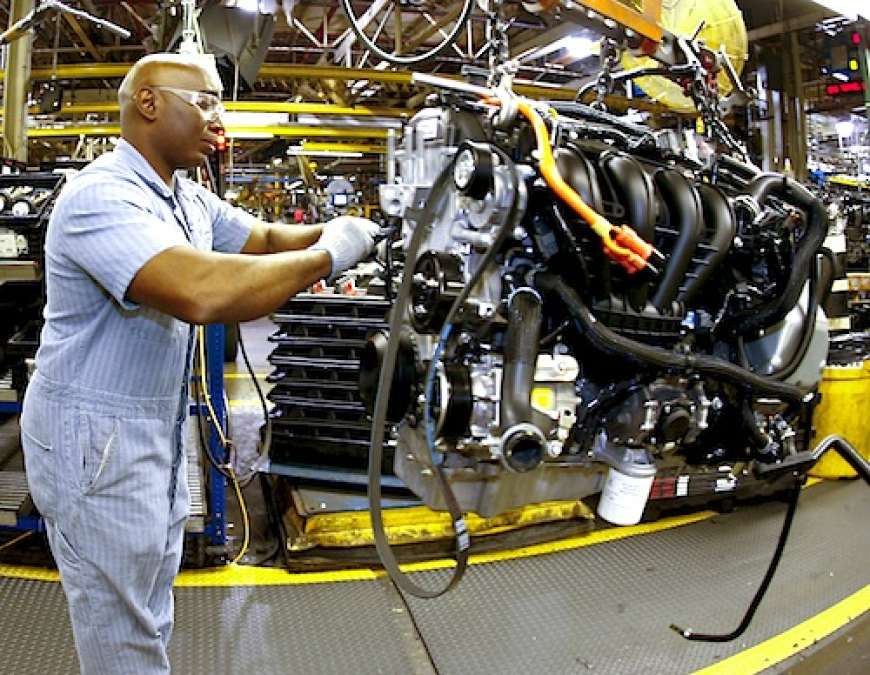Unfortunately, the one thing we never see is a solution that incorporates the best systems into one car. In other words, what if your car could recharge with electricity but if none was around, could also accept gasoline, diesel, cooking oil, CNG, bio-fuel and even hydrogen? While cars that can be recharged with electricity and have an onboard gasoline engine exist in the shape of hybrids, HEV and plug-in hybrids, PHEV, how come they are only limited to gasoline?
Technological Restrictions. In all fairness, automakers do the best with what they have. After all, the majority of their assembly lines are tweaked for the manufacturing internal combustion engines and assembling rolling stocks around these gasoline guzzlers. The switch from a gasoline-powered car to one assisted with an electric motor took more than a few ideas and proof of concept. It took finding a feasible solution with an electric motor coupled with nickel metal hydride and then later lithium batteries, implementing a new assembly line for it, training computer programmers to understand the intricacies of the automobile industry and much, much more. It’s a wonder hybrids are even on the road today. What it boils down to is feasibility and research tends to stagnate. This is also the reason why we will not see any time soon a series/parallel plug-in hybrid that can take most known form of energy. It simply would be too expensive to develop, without taking into consideration most of the infrastructure is simply non-existent and user demand is not there due to lack of understanding.
How About Flexibility?. Nonetheless, if a truly multi-energy car is close to impossible for big automakers to practically build and operate, how come we don’t have more flexibility with current hybrids? One of the question asked by people who would like to use alternative energy for cars is why can’t we have the best of all worlds? In other words, how come we still don’t have a plug-in hybrid that uses a 3-cylinder turbo single-ramp diesel engine? It’s not as if the technology isn’t there and surely almost all car manufacturers have some sort of diesel engines these days. Why are we stuck with the gasoline and electric design’s only choice? The question becomes an even more pressing one when we see how far diesel technology has come and how much cleaner CNG is to use. Why not help it with an electric motor?
The answers are many, ranging from the exorbitant development costs to user understanding and demanding of the technology. Unfortunately, carmakers want to maximize their shrinking profits and give us ultimately little choice. It’s a wonder when considering both CNG and diesel technology is available and has done its proof. Imagine how much more efficient a diesel and a CNG hybrid would be.






Comments
Awesome. Diesel in the
Permalink
Awesome. Diesel in the interim might be perfect. I think you've hit the nail on the head.
In the not-so-longer-term, though, both turbines and some of the new designs for opposed pistons can burn just about any liquid or gas efficiently as a generator. These would beat diesel in terms of cost of production and fuel efficiency/emissions. They're also scalable.
I once saw an amazing
Permalink
In reply to Awesome. Diesel in the by Aaron Turpen
I once saw an amazing prototype at the Los Angeles Auto Show based on a Factory 5 "GT40". It had a tiny turbine hooked to a generator charging a battery pack. The specs were extraordinary. It made me wonder why car makers didn't start swapping out inefficient piston engines with turbines for hybrids. It's all a question of research and feasibility. Thanks, Nicolas
Was it the Capstone CMT-380?
Permalink
In reply to I once saw an amazing by Nicolas Zart
Was it the Capstone CMT-380? That's a Factory 5 GT40 kit car with a Capstone 30kW turbine generator in it. I think it debuted in 2010.
Yes, it was. I covered it
Permalink
In reply to Was it the Capstone CMT-380? by Aaron Turpen
Yes, it was. I covered it back then on the Examiner. What a stunning piece of work!
Your coverage or the car? :)
Permalink
In reply to Yes, it was. I covered it by Nicolas Zart
Your coverage or the car? :)
Mine and how I wish it was
Permalink
In reply to Your coverage or the car? :) by Aaron Turpen
Mine and how I wish it was mine :) Sweet ride!
So when will someone do a
Permalink
So when will someone do a PHEV conversion of a DeLorean?
That would be too cool whatever it burned!
Oooooh, sweet! I can think
Permalink
In reply to So when will someone do a by Don Bain
Oooooh, sweet! I can think of a few others I would add to the mix, including my Alfa Romeo Spider. There was a guy here in LA who did hybrid conversion and had an engine with electric motor that you would drop into almost any car. He's company is called Vintage Hybrids. Great idea.